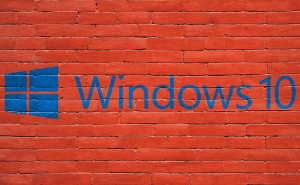 Don't let any phishing schemes ruin your holidays
Don't let any phishing schemes ruin your holidays
The holiday season is a time of joy and getting together with your loved ones, but, unfortunately, it is also the time when online scammers become even more active. With all the happiness and presents shopping fever, people tend to pay less attention to details and that's exactly what hackers need for their ploys to work. Since you need to know what to watch out for, here are some of the most commonly used phishing schemes during the holiday season.
Misleading shipping status notifications
More and more people prefer to shop online instead of actually going into a store because it takes less time, less effort and sometimes even less money. The downside of being a generous person who buys a lot of presents are the numerous emails that you have to deal with like order confirmations and shipping status notifications. While almost everybody is attentive when confirming an order, very few actually look twice at a shipping status email, so many hackers take advantage of this by leading unsuspecting victims to phishing websites that will steal their data and infect their PCs. Be extra careful about shipping status notifications; make sure that the product shipped is actually something that you bought, don't download anything and don't get redirected to a fishy site.
Bogus surveys
Many stores where you buy things from during this period will send surveys asking you about the quality of their services or something alone those lines and some will even offer incentives such as gift cards or discounts. Unfortunately, online scammers have no problem using bogus surveys to trick people into giving out their private data, so you should be careful. In the page where you have to write your personal data; don't give out your banking details and don't share too much private information that may help a hacker guess your passwords.
Fake deals
Another scheme that's very popular during the holiday season is the one that uses fake deals that you receive via email. During this time, it's better to trust only those companies that you've worked with in the past. Even if you do decide to open an email from a source that you don't know, definitely don't download anything and don't click any links or you may make some hackers holiday season better while also making yours worse.
Before we conclude, there are a couple of other safety-related tips that I want to give you: look thoroughly over the invoices that you receive to make sure that no fake ones get through and check your bank account more often than you would usually do so that if anything bad has happened, you catch it as quick as possible. Other than that, stay safe and have a great holiday season.
Now, when you've checked out the phishing scams that are usually employed during the holiday season, you may also want to read some of our other interesting stories such as: "Keep yourself safe from phone scams", "Top 7 Infamous Internet Scams" or "What is ransomware and how to protect yourself against it".




